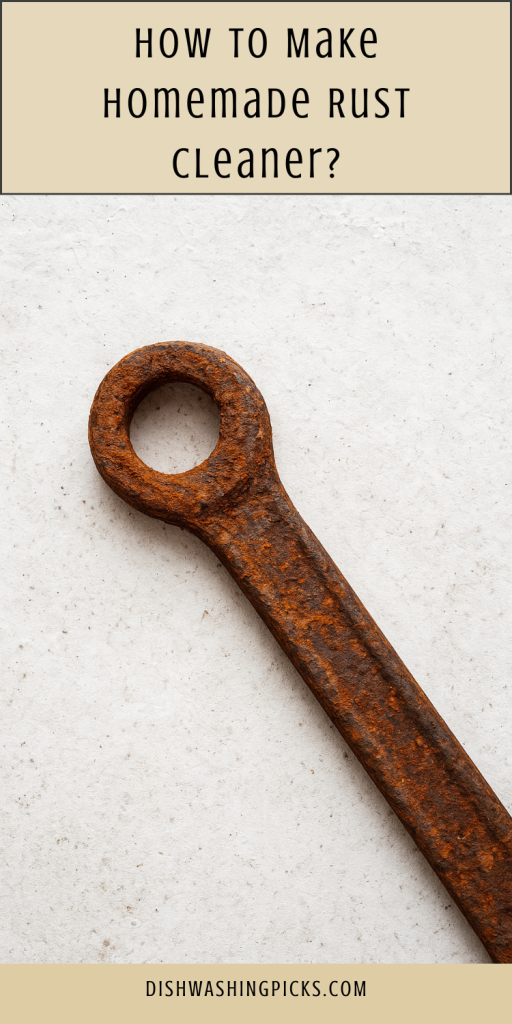
Introduction: Rust Happens, Don’t Panic
Rust. It sneaks up on you like that one friend who says, “I’ll just stay for five minutes” and ends up staying for hours. One day your garden tools, bike, or even kitchen scissors look fine, and the next they’ve got that orangey-brown coating that makes you cringe. But here’s the good news: you don’t need to run to the hardware store for some heavy-duty, chemical-filled cleaner. Nope—you can tackle rust with stuff you probably already have in your kitchen. Surprised? Stick with me.
And don’t worry, this isn’t one of those DIY guides that says “just sprinkle magic dust” and calls it a day. We’re talking practical, real-life fixes here. Ready to roll up your sleeves? Let’s dive in.
Why Rust Even Happens (a Quick Reality Check)
Before we get all science-y, let’s keep it simple. Rust is just iron meeting oxygen and water, and the three deciding to throw a party on your tools, pans, or furniture. It’s literally corrosion—nature’s way of saying, “I’ll take that back, thank you very much.”
Here’s the kicker though: the longer you let rust sit, the harder it is to clean. So the sooner you deal with it, the less elbow grease you’ll need. Think of it like spilled coffee on a white shirt—deal with it fast, and you’re golden. Ignore it, and well… goodbye favorite shirt.
The All-Natural Heroes: Vinegar, Lemon, and Baking Soda
Alright, let’s talk weapons. No, not power drills or industrial cleaners—just your pantry heroes: vinegar, lemon juice, and baking soda.
- Vinegar bath: Drop your rusty tool or item into a bowl of white vinegar. Leave it overnight, and by morning, you’ll see the rust loosen up. A quick scrub with a brush, and boom—good as new.
- Lemon + salt combo: Sprinkle salt on the rust, then squeeze fresh lemon juice over it. Let it sit a couple of hours. The acid does the heavy lifting, and you get the satisfaction of scrubbing it clean after.
- Baking soda paste: Mix baking soda with water to make a thick paste. Spread it on the rust, wait a bit, and scrub away. Bonus: it’s gentle, so it’s perfect for delicate surfaces.
See? Easy, non-toxic, and budget-friendly. Who needs a $20 rust remover when a 99-cent lemon can do the trick?
Practical Examples You’ll Actually Use
Okay, let’s put this into perspective. Imagine your bike chain has started looking like it’s been abandoned in the rain for months. Vinegar soak? Not practical. Instead, lemon juice on a cloth rubbed along the chain works wonders.
Or maybe you’ve got some rusty scissors? Dip them in vinegar overnight, scrub with an old toothbrush in the morning, and you’ll feel like you just unboxed them from the store. Even that cast iron pan you “forgot” in the sink? Baking soda paste can give it a second chance at life.
So, basically—rust doesn’t stand a chance if you’ve got a kitchen stocked with basics.
Wrapping It Up: You’ve Got This
Rust looks scary, but it’s really just a temporary guest if you know how to handle it. With vinegar, lemon, and baking soda in your cleaning toolkit, you don’t just save money—you also skip the harsh chemicals and still get pro-level results.
So next time you spot rust creeping onto something you love, don’t panic. Just remember: pantry > store-bought cleaners. Now go raid that kitchen and show rust who’s boss.
And hey—try one of these methods today, even on a small spot of rust. It’s oddly satisfying, like watching those cleaning videos where grime melts away. You’ll thank yourself later.
